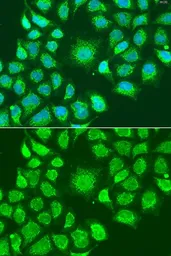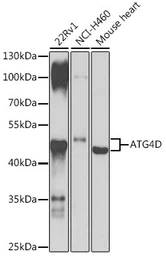ATG4D antibody
Cat. No. GTX33025
Cat. No. GTX33025
-
HostRabbit
-
ClonalityPolyclonal
-
IsotypeIgG
-
ApplicationsWB ICC/IF
-
ReactivityHuman, Mouse

